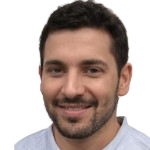The common question “Can a prepaid card be traced?” arises as, prepaid cards have become a go-to financial tool for millions worldwide. Whether used for everyday purchases, online shopping, or as a budgeting aid, their convenience and flexibility make them highly appealing – yet many users are curious about their traceability.
Unlike traditional debit or credit cards, prepaid cards are not directly linked to a bank account, offering a level of anonymity that some users find attractive. Many people also use PrepaidCardStatus login feature to manage their card balance and track transactions efficiently.
In this blog, we’ll explore how prepaid cards work, whether they can be traced, and the factors that determine their traceability.

Can a Prepaid Card Be Traced?
The answer depends on several key factors, from registration requirements to transaction monitoring systems.
1. Card Registration and KYC Verification
In many regions, financial regulations require prepaid cardholders to register their personal information. This process is known as Know Your Customer (KYC) verification. During registration, card issuers collect details such as:
- Full name
- Address
- Phone number
- Date of birth
- Social Security Number (SSN) or Tax ID (for reloadable cards)
When KYC verification is performed, a prepaid card can be traced back to the registered owner, especially if it is used for online transactions or ATM withdrawals.
2. Transaction Monitoring and Tracking
Even if a prepaid card is not directly linked to a bank account, transactions made with the card are still recorded by the card network (Visa, Mastercard, or American Express). Law enforcement agencies and financial institutions can request transaction records to trace prepaid card activity.
Information That Can Be Traced:
- Time and location of purchases
- Merchant details
- ATM withdrawal locations
- IP addresses (for online transactions)
| Traceable Data | Description |
|---|---|
| Transaction history | Purchase date, time, and amount |
| Merchant information | Store name and location |
| ATM withdrawal location | Identifies where cash was accessed |
| Online transaction IP | Reveals the location of the user |
3. Linked Accounts and Reloadable Cards
Reloadable prepaid cards, often used for regular expenses, are typically linked to an account with the card issuer. These accounts can be traced using the registration data.
In contrast, single-use gift cards or anonymous prepaid cards are much harder to trace because they are not tied to personal information.
Therefore, the ability to trace a prepaid card largely depends on whether it requires registration and the type of transactions performed.
When Can a Prepaid Card Be Traced?
While prepaid cards offer some level of privacy, they are not entirely untraceable. Here are common scenarios where they can be tracked:
1. Law Enforcement Investigations
Law enforcement agencies have the authority to trace prepaid cards when investigating criminal activities. If the card was used for illegal transactions, authorities can request the card issuer to provide transaction details and registered user information. This is one situation where a prepaid card can be traced.
2. Online Purchases
When using a prepaid card for online shopping, the website records the IP address and device information. This creates a digital footprint, making it possible to trace the prepaid card back to the user.
3. Large Transactions or Suspicious Activity
Financial institutions monitor prepaid card transactions for suspicious patterns. Large or repeated high-value transactions can trigger investigations, making it easier to trace the prepaid card.
4. Bank Transfers and ATM Withdrawals
If a prepaid card is used to withdraw cash or transfer funds, the transaction is logged, making it possible to trace the location and time of the activity.
While prepaid cards provide some anonymity, their traceability increases when used for online purchases or large transactions.
Can Anonymous Prepaid Cards Be Traced?
Many people believe that anonymous prepaid cards offer complete privacy. However, even anonymous cards can sometimes be traced.
1. Limited Anonymity
While anonymous prepaid cards do not require personal information during purchase, they can still be tracked through:
- Transaction records: Purchases leave a trail that can be analyzed.
- Retailer data: Stores often have surveillance cameras, which can help authorities identify who used the card.
- Usage patterns: Repeated use in specific locations can reveal the cardholder’s identity.
2. Geolocation and IP Tracking
If the card is used online, IP addresses and geolocation data can be linked to the card activity, reducing its anonymity.
Even anonymous prepaid cards are not completely untraceable—persistent tracking efforts can still reveal their usage patterns.
Conclusion
So, can a prepaid card be traced? The answer is: that it depends. While some prepaid cards, particularly anonymous or single-use gift cards, offer a higher level of privacy, most reloadable and registered prepaid cards can be traced. Financial institutions, law enforcement agencies, and merchants can track transaction data, making it possible to identify users in many cases.
For consumers, understanding the traceability of prepaid cards is essential. Those seeking financial privacy should opt for anonymous cards with limited reload capabilities. However, it’s important to recognize that even these cards leave a transactional footprint.
Ultimately, while prepaid cards can offer convenience and some anonymity, they are not entirely untraceable. Being aware of how and when a prepaid card can be traced helps consumers make informed decisions about their usage and privacy.
